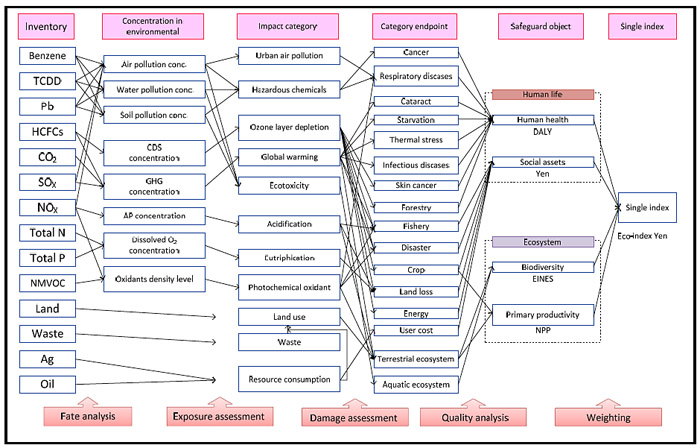Life Cycle Impact Modeling of Global Warming on Net Primary Production : A Case Study of Biodiesel in Thailand
Main Article Content
Abstract
Life Cycle Assessment (LCA) is an effective tool for evaluating the potential
environmental impact associated with all stages of a product's life cycle. Currently, a number of
Life Cycle Impact Assessment (LCIA) methodologies have been developed. These methods are
based on an ad hoc approach adopted by different countries and regional conditions, which
make the results difficult to compare. In Thailand, the methodological choices and framework to
assess environmental impacts in LCA are still under development. Because the actual amount of
environmental damage differs depending on environmental variables such as climate and
population density, there is a need to develop the LCIA method for use in Thailand. The aim of
this research is therefore to develop LCIA method that is suitable for Thailand, within the
context of global warming. The results show that the midpoint approach have been similar with
any LCIA method, while the endpoint approach considered two factors are for the world and in
Thailand. Based on endpoint approach, the net primary productivity (NPP) damage factor the
World and Thailand from all 63 greenhouse gas emissions are 8.78 x 105 and 2.72 x 10-2 kg/kg,
respectively. Further development will be developed other the effects of global warming on
human health and social assets with the sensitivity analysis and other impact categories which
the important environmental problems in Thailand.
Article Details
Published articles are under the copyright of the Environment and Natural Resources Journal effective when the article is accepted for publication thus granting Environment and Natural Resources Journal all rights for the work so that both parties may be protected from the consequences of unauthorized use. Partially or totally publication of an article elsewhere is possible only after the consent from the editors.

